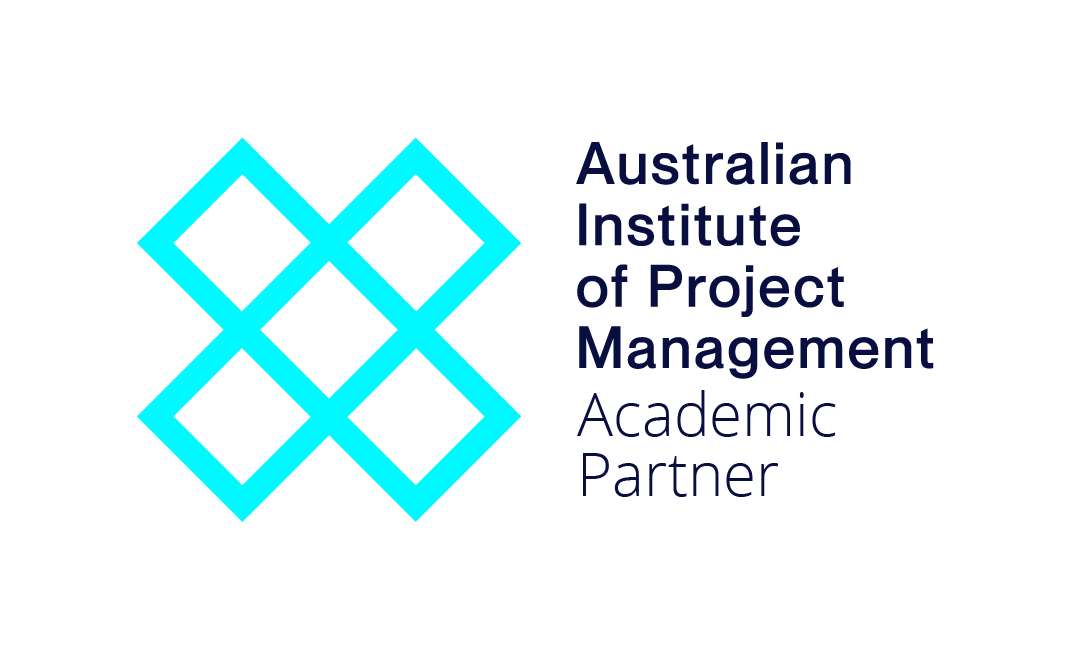Overview
Gain a diverse and in-demand skillset for a rewarding project-management career in business, industry or the public sector, when you study the Master of Project Management at Victoria University.
This project-management course is designed for both current and aspiring project managers. It equips you with advanced project-management techniques that can be applied across various industries, including:
- construction
- engineering
- health services
- information technology
- private business
- public sector.
As one of the first Australian universities to establish a project-management masters degree, we have strong, long-held industry connections. Our work-based scenarios give you opportunities for specialised research and valuable professional experience, preparing you for challenging career roles or advanced scholarship.
Our masters program is endorsed by the Australian Institute of Project Management (AIPM).
The internationally recognised Guide to the Project Management Body of Knowledge (PMBOK® Guide) underpins all our teaching.
Study in convenient eight-week blocks
Following the overwhelming success of the revolutionary VU Block Model with undergraduate students, we have rolled out the Block Model to our postgraduate courses.
This course is delivered in eight-week mode, which means you study two units (subjects) at a time over eight weeks (or one unit at a time over eight weeks for part-time study), rather than juggling several units at once. And with its focused timetables and smaller, collaborative classes, VU’s Block Model gives you more time to connect with your peers, lecturers and industry partners, helping you to build strong professional networks.
The VU Block Model has improved our student results and engagement, and has won multiple international awards for innovation and excellence.
Up-to-date project-management techniques
Our course includes the latest project management methods, trending across the various industries.
Our lecturers are experienced project managers, and our program is industry-run and led. Through strong connections to industry we keep up to date on current project management requirements.
Some of the latest global trends in project management we teach include being customer-focused and agile.
Apply your study to your area of interest
You can apply the project management skills, techniques and methods you learn to real-world projects and specialised areas relevant to your current work or area of interest. You will work in groups to present evidence for project management solutions.
This kind of learning experience prepares you to meet the real demands of your workplace in a project management role.
Postgraduate academic learning advice
As a postgraduate student you can take up one of many opportunities to further develop your academic language and study skills. VU’s Learning Hubs are welcoming spaces where you can improve your study and employability skills.
We offer maths, writing, careers and English-language advice and show you effective ways to study and manage your time.
Our programs include:
- workshops
- drop-in sessions
- peer mentoring
- maths and writing resources
- resume and career guidance.
We also have accessibility support services and counselling services available for all students.
Need some advice?
Request a call back from one of our experienced VUHQ course advisers to get your questions answered.
Request a call backAIPM endorsement

The Master of Project Management course is endorsed by Australian Institute of Project Management (AIPM). Upon the completion of the endorsed qualification and joining AIPM as an Associate or Member, students are entitled to automatic recognition for AIPM’s Certified Practising Project Practitioner (CPPP).
Careers in project management
Traditionally found only in construction, in the past 30 years project management has expanded to include almost every industry. It is also now recognised as needing significant training and qualifications.
Graduation from this course will prepare you for a variety of project management careers in a wide range of sectors, including engineering, construction, business, information technology, administration and others.
Salaries
Use Labour Market Insights to find average salaries in Australia for project management in various industries:
Organisations employing project management graduates
Project managers are employed across a huge variety of industries. Following your masters degree, you could find work managing projects in private business or the public sector.
Our graduates have found work in companies such as:
- Grocon
- Leighton Contractors
- Woodburne Consulting
- Savills Project Management
- Major Projects Victoria
- project-management consulting firms.
Areas which employ project managers include:
- administration
- business
- construction
- engineering
- health services sector
- information technology
- public sector
- science.
Course structure
To attain the Master of Project Management, students will be required to complete 192 credit points, consisting of:
-
120 credit points of Core studies;
-
72 credit points of Elective studies.
Course structure and units
Year One
-
- Unit code
- EPM6001
- Credits
- 12
-
- Unit code
- EPM6002
- Credits
- 12
-
- Unit code
- EPM6003
- Credits
- 12
-
- Unit code
- EPM6004
- Credits
- 12
-
- Unit code
- EPM6005
- Credits
- 12
And
36 credit points from the approved electives list
Year Two
-
- Unit code
- EPM7004
- Credits
- 12
-
- Unit code
- EPM6006
- Credits
- 12
-
- Unit code
- EPM6007
- Credits
- 12
Plus
Select 24 credit points of Research Project:
-
- Unit code
- EPM7001
- Credits
- 12
-
- Unit code
- EPM7002
- Credits
- 12
Or
-
- Unit code
- EPM7003
- Credits
- 24
And
36 credit points from the approved elective list
Elective Units
-
- Unit code
- BMO6050
- Credits
- 12
-
- Unit code
- BMO6506
- Credits
- 12
-
- Unit code
- BMO6622
- Credits
- 12
-
- Unit code
- EPM6008
- Credits
- 12
-
- Unit code
- EPM6009
- Credits
- 12
-
- Unit code
- EPM6010
- Credits
- 12
-
- Unit code
- EPM6011
- Credits
- 12
-
- Unit code
- EPM6012
- Credits
- 12
-
- Unit code
- EPM6013
- Credits
- 12
Learning outcomes
On successful completion of this course, students will be able to:
| 1. | Critically analyse and adapt advanced project management models and principles to design and evaluate solutions for complex scenarios, integrating social, ethical, environmental, and economic factors; | ||
| 2. | Conceptually map and implement comprehensive organisational and management frameworks that optimise strategic objectives across various project performance domains; | ||
| 3. | Devise and validate comprehensive project management plans to address complex organisational initiatives across diverse stakeholder environments; | ||
| 4. | Synthesise professional standards, regulatory frameworks and industry best practices to lead ethically sound and compliant project management initiatives; | ||
| 5. | Interpret and critique advanced organisational theories and disseminate evidence-based recommendations, demonstrating project management leadership competencies; | ||
| 6. | Design and implement appropriate research methodologies to investigate complex project management problems and formulate evidence-based solutions; and | ||
| 7. | Synthesise specialist knowledge and technical skills to design innovative solutions demonstrating independent decision-making in professional project management practice. |
What's a unit?
A unit or 'subject' is the actual class you'll attend in the process of completing a course.
Most courses have a mixture of compulsory 'core' units that you need to take and optional elective units that you can choose to take based on your area of interest, expertise or experience.
Credits
Each unit is worth a set amount of study credits based on the amount of time you study. Generally, 1 credit is equal to 1 hour of study per week.
Fees & scholarships
Fee type for this course: Full-fee
Fee type definitions
The amount you pay for your course depends on whether you’re offered a Commonwealth supported place (CSP) or a full fee-paying place.
Students who enrol in a:
- Commonwealth supported place pay tuition fees that are partly subsidised by the Australian government
- full fee-paying place need to pay the full amount for all enrolled units before census each study period.
In addition to your tuition fees, you may also be charged a Student Services & Amenities Fee (SSAF).
Scholarships & assistance
Apply for a scholarship to help with your study costs.
We can help with fee assistance and advice.
Admission & pathways
Meeting the minimum admission requirements does not guarantee you entry into this course. Some courses receive more applications than the number of places available. In this situation we will also assess your education, work and other relevant experience.
If you do not meet the minimum requirements you may be eligible for one of our special admission programs. We also encourage you to explore our study pathways to help you reach your goal.
Find out more about how to apply for our courses, and our commitment to admissions transparency.
Entry requirements
Completion of an Australian Bachelor degree (or equivalent) in any discipline
OR
Completion of an Australian Graduate Diploma (or equivalent) in a similar discipline
OR
Applicants without an undergraduate qualification may be admitted to the Graduate Diploma based on approved work experience. Upon completion of the Graduate Diploma, graduates will be eligible for admission to this course with credit granted for completed units.
Pathways from VU courses
There are many ways you can start your education journey at VU. Pathways offer an easy transition between courses at different levels, so that you can start with a certificate and progress right through to postgraduate study.
Find out more about pathways and credits.
Credit for skills and past study
Use our credit calculator to find out how much credit you could get towards your course, based on your previous study.
If you have completed study with another university or institution and believe you are eligible to receive credit for skills and past study, you can apply for advanced standing.
Applications for advanced standing can be made after a discussion with your course chair or academic adviser.
How to apply
Available start dates:
- 27 April 2026
- 27 July 2026
- 28 September 2026
Before you apply
Before applying, you should consider whether you also want to apply for:
- Special admission programs: Depending on your life circumstances you may be eligible for special consideration of your application.
- Advanced standing: If you have significant experience or studies elsewhere you may be eligible for credit for some units of your course and not have to undertake them.
Find out more about applying for our courses.
Apply direct to VU
Direct applications are due on 19 April 2026 for our next intake which starts on 27 April 2026.
Already a VU student?
If you are already a VU student, apply direct to VU using our Admissions centre to transfer into this course. Remember it’s best to be accepted into your new course before withdrawing from your current one.
After you apply
- It’s important to check for emails from us (which may go to your spam/junk folder).
- Complete any requests for information by the given dates, otherwise your application may not be considered
Enquire now
Please fill out the form below, and we'll get back to you shortly.
Get help
- Visit a student service centre
- 1300 VIC UNI (1300 842 864)
- Request a call back
- Visit the glossary
At Victoria University, we aim to display accurate and complete course information online. However, we are unable to guarantee that every course change is currently displayed. You may contact the University directly on +61 3 9919 6100 to confirm the most up-to-date course fees, pathways and credit transfer, recognition of prior learning, admission and enrolment procedures, examinations and services available to our students.



